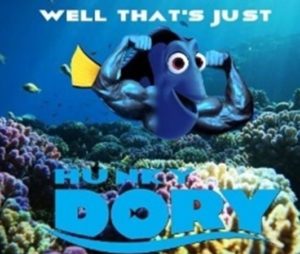Are you looking for a way to tell someone that everything is fine and they don’t have to worry? If so, you could use the expression, “hunky dory.” This post unpacks everything you need to know about the meaning and origin of this expression.
Meaning
If someone tells you that everything is “hunky dory,” it means that everything is okay and going as planned to your expectations.
It’s a way of giving people confidence in you or to build their trust in you after giving you a task. For instance, your parents might go out for the evening, leaving you in charge of your younger sister. They might call to ask you how things are when they are out during the evening. You reply with “Hunky dory” to let them know they don’t need to worry.
Usage
“I know you’re calling to find out how we are, but everything here is hunky dory, and you have nothing to worry about. Just relax and enjoy the trip.”
“Thanks for calling in, Boss; everything’s hunky dory here right now, the lunch rush was good, and we’re prepping for dinner.”
“Everything’s hunky dory, mom; I don’t know what you’re freaking out about; we won’t get into trouble, I promise.”
“Everything here is hunky dory; I’m leaving for the day; I’ll see you tomorrow for the morning shift.”
“You told me that everything was hunky dory, and then I get here to find this mess? What’s going on?”


Origin
The origin of the phrase “hunky dory” seems to come from a Japanese term, first defined in 187 by John Russell Bartlett. The “4th edition of Dictionary of Americanisms” has an earlier spelling of the phrase, “hunky dory,” as follows.
“Hunkidori. Superlatively good. Said to be a word introduced by Japanese Tommy or derived from the name of a street, or bazaar, in Tokyo.”
Thomas Dilward was the stage performer with the name “Japanese Tommy.” Japanese Tommy was popular in the United States in the 1860s. While his title suggested he was Japanese, he was anything but the sort.
However, the most probable origin of the phrase comes from the US Navy. US Commodore, Matthew Perry, opened trade with Japan in the 1850s. During the US visits to the land, the Americans would learn terms from the locals.
The Japanese “honcho-Dori” means “main street” in English, and most cities have them, similar to the British “high street.” Some experts suggest sailors already knew the term “hunky,” adding the Japanese “dori” for the road to allude to the “easy street” life they lived while traveling with the navy.
Phrases Similar to Hunky Dory
- Just fine.
- A-okay.
- No problem.
- We’re good.
Phrases Opposite to Hunky Dory
- Things are not going well.
- It’s a disaster.
What is the Correct Saying?
- Hunky dory.
Ways People May Say Hunky Dory Incorrectly
Some people may use the phrase to describe hunks or Dory the fish from the “Finding Nemo” franchise. There are plenty of memes online featuring a buff photoshop version of Dory. However, it’s not the correct use of the expression as it has nothing to do with fishes or well-built men.
Acceptable Ways to Phrase Hunky Dory
You can use the phrase “hunky dory” when you’re trying to tell others that everything is just fine or okay. The term means that things couldn’t be better, and suits social and professional language. For instance, you could tell your boss that everything is hunky dory with the stocktake.
Or you could tell your partner that everything is hunky dory at home while she’s away for the weekend. The expression is also the subject of many memes, and you could reply to someone with one of them instead of texting it.